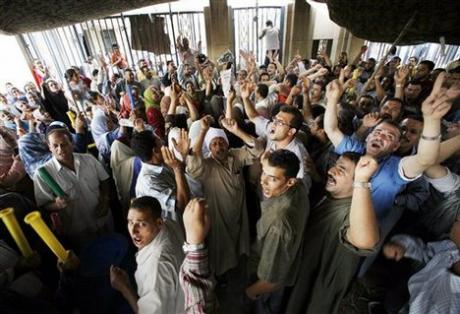JEDDAH: Two initiatives — US President Barack Obama’s vision of interfaith harmony as expounded in his historic June 2009 address to the Muslim world from Cairo, and the interfaith dialogue initiated by Saudi King Abdullah during the 1st International Islamic Conference on Dialogue held in Mecca in June 2008 to confront the spread of Islamophobia and build bridges of understanding between the Muslim world and the West — have been well received by religious leaders worldwide. This was evident at the community outreach program that was organized by the Council of Saudi Chambers of Commerce and Industry’s Committee of International Trade (CIT) on the sidelines of the US-Saudi Business Opportunities Forum that took place on 28-29 April in Chicago.
Five members of the delegation accompanying Commerce and Industry Minister Abdullah Zainal Alireza to the Windy City participated in the Interfaith Breakfast Dialogue, which took place at the University of Chicago’s Gleacher Center. They had the opportunity to discover the efforts of religious leaders dedicated to building a peaceful coexistence between followers of the Abrahamic faiths in the Chicago community.
In a moderated panel discussion, five religious leaders of different faiths addressed the backlash after 9/11 and stressed the need for interfaith programs to dispel misunderstanding and media misconceptions that spread hatred and misconceptions about different faiths. The panel included an imam, a reverend, a rabbi and other religious leaders who outlined their missions toward finding common ground and building trust and respect among all religions.
They also shared their experiences and activities involving the Chicago community in interfaith dialogue and interfaith learning.
One of the most interesting institutions represented was The Chicago Coalition for Inter-Religious Learning – a group of Catholics, Jews and Muslims working together with an approach based on a spirit of respectful inquiry, none of whom were attempting to “convert” nor claim that there is no difference between the three Abrahamic religions.
Indeed, this new approach of accepting and respecting differences between Muslims, Christians and Jews could put an end to hostilities and eliminate the tension and conflict that mars relations between the Muslim world and the West. The coalition includes educators, writers and book publishers who came together after 9/11 to confront teachings of hatred, contempt and damaging stereotypes that can be found in religious school classrooms.
It is truly heartening to know that there are efforts to stop the spread of Islamophobia and discrimination against people of different faiths. The religious leaders of Chicago are engaged in organizing interactive workshops and giving presentations to religious school educators and administrators to stimulate inter-religious thinking and to create better teaching models.
Moreover, they are developing a more accurate multimedia resource guide and they are supporting student participation in trilateral dialogue activities and other interfaith learning projects. Among their main activities is monitoring publications, films and other classroom resources for coalition members to review or endorse.
The members of the Saudi delegation stressed that religious leaders should not follow the paths of their predecessors who fought many wars over religion. Today, the global community should be more concerned with eradicating poverty and disease, protecting the environment, ending wars and eliminating the injustices and human suffering that still exist in many parts of the world.
Through interfaith learning, the coalition strives to enable everyone to understand the different religious beliefs and at the same time allow each individual to remain true to the core of their own religious traditions. These noble initiatives should be implemented on a global scale, and they should be publicized in order to promote friendly relations and goodwill between the United States and the Muslim world.
Samar Fatany is a Saudi radio journalist based in Jeddah. This abridged article is distributed by the Common Ground News Service (CGNews) with permission from the author. The full text can be found at www.khaleejtimes.com.

